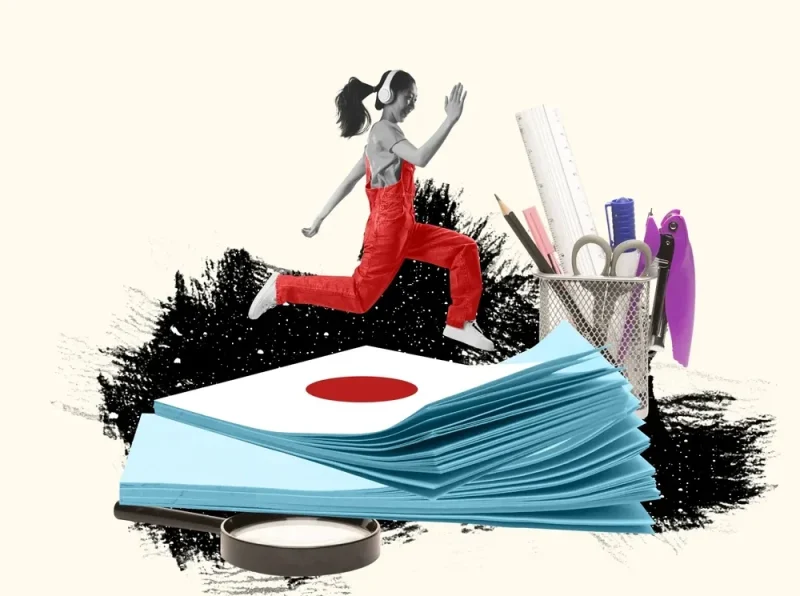What is the meaning and usage of "otoshidokoro"? Example sentences and English expressions for business

Have you ever heard the phrase "otoshidokoro"? Perhaps you have encountered this phrase in your workplace. At first glance, this phrase may seem unfamiliar, but it actually represents a very important concept in the business world.
This article details the meaning of "drop-off point," its usage, how to use it in business communication, as well as English expressions, paraphrases, and thesauruses.
▼Goandup Picks Click here for recommended articles!
- Required before studying abroad! Goandup Nihongo+, an online Japanese language learning service
- This page introduces services for foreigners who wish to study in Japan or improve their Japanese language skills to learn Japanese online.
- Goandup Salon" community for foreigners living in Japan
- We introduce an online community where foreigners living in Japan can exchange information and interact with each other to support their life in Japan.
- Goandup Study" supports foreigners who want to study in Japan.
- This section introduces study abroad support services that provide comprehensive support to foreigners who wish to study in Japan, from preparation for study abroad to living in Japan.
- Where can I buy a prepaid SIM in Japan? Recommended SIM cards for foreigners are also introduced.
- How to purchase a prepaid SIM and suitable SIM cards for foreigners.
- The Complete Guide to Pocket Wi-Fi in Japan for Foreigners!
- We introduce how to select and recommend pocket Wi-Fi products that can be used conveniently in Japan.
- The Complete Guide to Finding a Job in Japan! Finding a job, changing jobs, and part-time work for foreigners
- This site provides foreigners who want to work in Japan with comprehensive information on how to find a job, recommended job sites, and other information necessary to find a job.
What does "drop-off point" mean?

The term "drop point" refers to a common point in the middle of a discussion or transaction where both parties feel that this is acceptable. The term is used in protracted discussions to indicate a final solution or terms that are acceptable to both parties. Specifically, the phrase "finding the drop-off point" is frequently used in business negotiations and in resolving differences of opinion between individuals. It emphasizes the process of reaching a final agreement and the importance of finding a compromise that is acceptable to both parties and is an important step toward an acceptable outcome.
- Conditions that you and the other party to the discussion or transaction would find "acceptable".
- Terms that can be discussed and agreed upon in a transaction.
- Convincing condition.
What is the English equivalent of "drop-off point"?
The closest words in English to describe a "drop-off point" are "compromise" and "common ground.
"Compromise" refers to a concession or compromise to arrive at a solution that is acceptable, but not completely satisfactory to both sides. "Common ground," on the other hand, refers to the foundation or common understanding shared by people with different positions and opinions in order to reach an agreement.
These expressions help to simply describe the process of reconciling each other's demands and expectations and ultimately finding mutually acceptable terms.
How to use the word "drop-off point"

- prepare a drop-off point
- consider where to drop something
- a decision is made when the end is in sight
- find a smooth way out of a tricky situation
- I don't know where to put my emotions.
The word "drop" used in "drop" means "to bring to an end" or "to conclude." It can mean "to bring to an end" or "to conclude," and it is used as the place where discussions and negotiations end.
In the case of negotiations and transactions, both the other party and yourself often find conditions under which both parties are willing to follow the other party's conditions to this extent. The drop-off point seems to be used for where those mutual conditions meet.
I don't know where to drop my feelings" may be used when you feel confused because you seem to have a lot of thoughts, ideas, and feelings about something. Since it has the meaning of "agreeable conditions," "I don't know where to put my feelings," is sometimes used in negative situations.
The concept of "drop point" is used in a variety of ways in actual communication and negotiation situations. This expression is particularly useful in the following situations
- Finding a compromise: The process of finding a solution that is acceptable to both parties.
- Seek a drop-off point: Through negotiation and discussion, explore possible points of agreement.
- Reaching a Drop: The moment when mutual demands are reconciled and a point of agreement is finally reached.
- Find the right drop-off point: Determine the conditions that are most acceptable to both parties.
- Finding the emotional pitfalls: Explore points of emotional conviction in personal conflicts and disagreements.
The verb "drop" is used in the sense of "to bring to an end" or "to settle," and this specifically indicates the point at which a discussion or negotiation comes to an end. In negotiations and transactions, it is common for both sides to find a point at which they feel that it is acceptable to follow the other party's terms to this extent. The process of finding such mutually acceptable terms is the essence of "settling point.
The expression "I don't know where to put my feelings down" refers to the state of having complex feelings about a situation or event and being confused about how to process them. This is used when one is experiencing difficulty in finding "acceptable conditions" emotionally.
Can "drop-off point" be used in business situations?

The term "drop-off point" is very commonly used in business situations. During negotiations and conversations, this expression is utilized to find a solution that is acceptable to both parties. This term is especially useful for facilitating negotiations and discussions at work, and is more commonly used in business than in conversations with friends. It is also used to report to a supervisor or team member about an ongoing negotiation or conversation.
Paraphrases and thesauruses for "drop-off point" in business situations
In business situations, "drop point" can be phrased in different ways, such as "compromise," "compromise plan," or "compromise plan. These words describe the process of finding an agreement or solution that can be reached between the other party and yourself.
- Compromise: refers to the result of an adjustment from a specific solution or proposal that is unacceptable to both parties to one that is acceptable.
- Compromise: It means finding a more balanced solution by successfully blending the demands and expectations of both parties.
- Compromise: An agreement on terms that are ultimately acceptable to both parties.
These expressions play an important role in effective communication skills, along with flexible thinking, during negotiations and discussions in business situations. Appropriate use of these paraphrases in the process of seeking the best solution for both sides can lead to a smoother agreement.
If you want to know more about ◆Business Japanese, check out the following articles!
- What does [understand well] 「逆に」 mean? Thesaurus and example sentences.
- Explains the meaning of the business term "draft". Is it different from draft beer?
- Business x Japanese - What does "展開する" mean? Explanation + Example sentences
- What does "zakkuri" mean and how is it used? Expressions in business situations are also introduced.
- What does "ass" mean as used in business conversation?
- What does "Tatakidate" mean in Business x Japanese? Explanation + Example Sentences
For those of you who want to further your studies at a Japanese language school

The Japanese language attracts attention from around the world for its rich expressiveness and profound culture. From movies, music, and literature to everyday conversation, learning Japanese is not only a way to acquire a new language, but also a gateway to a deeper cultural understanding and a broader perspective.
For those of you who want to study Japanese more seriously, enter higher education in Japan, or find a job in Japan, taking your Japanese language skills to the next level is the first step in turning your dreams into reality. There are approximately 700 Japanese language schools in Japan with various characteristics, but it is not easy to select the best school for you.
Therefore, we will do our best to help you choose the perfect Japanese language school to realize your goals and dreams! If you have any questions or concerns about Japanese language schools, please feel free to contact us using the inquiry form below.
We will provide you with the best support to meet your Japanese language learning goals. We hope that our support will make your Japanese language study more fulfilling and fruitful.
summary
This article details the meaning and usage of "pitfalls," as well as its use in business situations and paraphrased expressions and thesauruses. The term aims to find terms that are acceptable to both parties and plays an important role in resolving disagreements in business negotiations and in everyday life.
If you have any questions about the use of "drop-off points" in the workplace, you may want to ask your Japanese-speaking colleagues. We hope that this article will help you to negotiate and converse more smoothly in business situations and reach mutual understanding and agreement.






